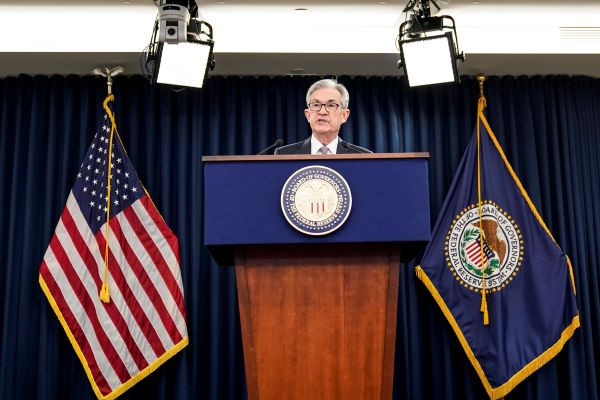The Federal Reserve decided Wednesday to stop a series of rate cuts and leave rates playing around 1.5% to 1.75%. Policymakers voted on the decision unanimously, saying that leaving rates as-is will support the U.S. economy's expansion that is taking place for the last 11 years, including 2019.
The decision eased concerns over a recession and further economic repercussions due to the instability of geopolitical relations. Of attendance that made the vote were Chair Jerome Powell; and Fed officials Michelle Bowman, Lael Brainard, James Bullard, Richard Clarida, Charles Evans, Esther George, Randal Quarles, and Eric Rosengren.
Powel explained that rates need not jump anytime soon because the Federal Open Market Committee meeting held in October found that there was no stimulus pushing for interests to spike. For one, the labor market was found to be robust with the economic activity elsewhere in the country rising steadily, albeit moderately. There have been consistent job gains in the months leading up to October.
There might have been a rapid spike in household spending but export remained bleak. Of most important consideration is how overall inflation has been running slow for the last 12 months. Specifically, inflation was below 2% except for food and energy. If examined relative to market movement, the inflation compensation remained low.
Powell, however, said that in as much as Fed doesn't see it appropriate to adjust monetary policy, the administration's trade wars could test their stand. He said it remains significant if the current administration could reach resolutions with China, and Mexico and Canada.
On the China front, U.S. President Donald Trump is expected to gather his top trade advisers ahead of new tariffs set on 15 Dec. The administration plans to impose levies on an additional $160 billion in Chinese goods. The main concern among market observers is whether the US will postpone tariffs or go ahead with them.
Concerning relations with Mexico and Canada, the three countries have already signed the revised decades-long North American Free Trade Agreement (Nafta) to the current version, the US-Mexico-Canada Agreement (USCMA). Conflict stemming from the issue caused lost in numerous manufacturing jobs since last year. Not to mention the damage brought to the automotive industry.
The first revised version was signed more than a year ago. Hopefully, the one signed this week will cement relations back to favorable conditions again. USCMA aims to improve worker rights; eliminate patent provision which could otherwise push prices of newly developed medicine to high levels.





